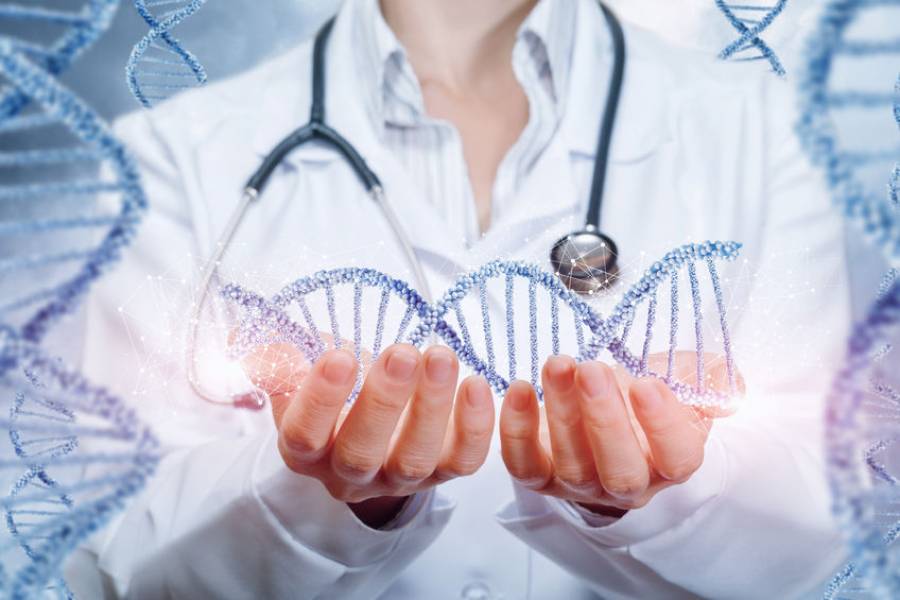Genetic testing helps estimate your chance of developing cancer in your lifetime. It does this by searching for specific changes in your genes, chromosomes, or proteins. These changes are called mutations.
Genetic tests are available for some types of cancer. These include:
- Breast cancer
- Ovarian cancer
- Colon cancer
- Thyroid cancer
- Prostate cancer
- Pancreatic cancer
- Melanoma
- Sarcoma
- Kidney cancer
- Stomach cancer

Genetic testing may help:
- Predict your risk of a particular disease
- Find if you have genes that may pass increased cancer risk to your children
- Provide information to guide your health care
No genetic test can say if you will develop cancer for sure. But it can tell you if you have a higher risk than most people.
Only some people with a gene mutation will develop cancer. What does this mean? A woman may have a 45% to 65% chance of breast cancer. But she may never develop the disease. Meanwhile, a woman with a 25% chance may develop breast cancer.
Risk factors for hereditary cancer:
Hereditary cancer is any cancer caused by an inherited gene mutation. An inherited gene means it is passed from parent to child within a family. The following factors suggest a possible increased risk for hereditary cancer:
- Family history of cancer. Having 3 or more relatives on the same side of the family with the same or related forms of cancer.
- Cancer at an early age. Having 2 or more relatives diagnosed with cancer at an early age. This factor may differ depending on the type of cancer.
- Multiple cancers. When one relative develops 2 or more types of cancer.
- Rare cancers. Some types of cancer, such as ovarian cancer, adrenocortical cancer, or sarcoma, are linked to inherited genetic mutations.
Reasons to consider genetic testing for cancer:
Genetic testing is a personal decision made for different reasons. It is also a complex decision best made after talking with your family, health care team, and genetic counselor.
ASCO recommends considering genetic testing in the following situations:
- A personal or family history suggests a genetic cause of cancer.
- A test will clearly show a specific genetic change.
- The results will help with the diagnosis or management of a condition. For example, you may take steps to lower your risk. Steps may include surgery, medication, frequent screening, or lifestyle changes.
Other factors to consider:
Genetic testing has limitations and emotional implications. These may include:
- Depression, anxiety, or guilt. A positive test result means a gene mutation exists. This result may bring difficult emotions. Some people may think of themselves as sick, even if they never develop cancer. Negative test results may also cause difficult emotions. For example, some people may experience guilt if they do not have a gene mutation that other family members have.
- Family tension. People are generally encouraged to tell family members about test results because they can be important for the health of family members. But this information could also complicate family dynamics. Learn more about sharing genetic test results with your family.
- A false sense of security. A negative result means a specific genetic mutation is not present. But people with negative results may still develop cancer. A negative result only means the person’s risk is average. Each person’s risk for cancer is also affected by other factors. For example, lifestyle, environmental exposure, and medical history.
- Unclear results. A gene may have a mutation not linked with cancer risk. This is called a variant of unknown significance. It means that it is unclear whether the mutation will increase the risk. Or people may have mutations that current tests cannot find. Many cancers are not yet tied to specific gene mutations. Also, some genes may interact unpredictably with other genes or environmental factors. And these interactions may cause cancer. So it may be impossible to calculate the cancer risk.
- High cost. Genetic testing can be expensive. It is particularly expensive if health insurance does not pay for it.
